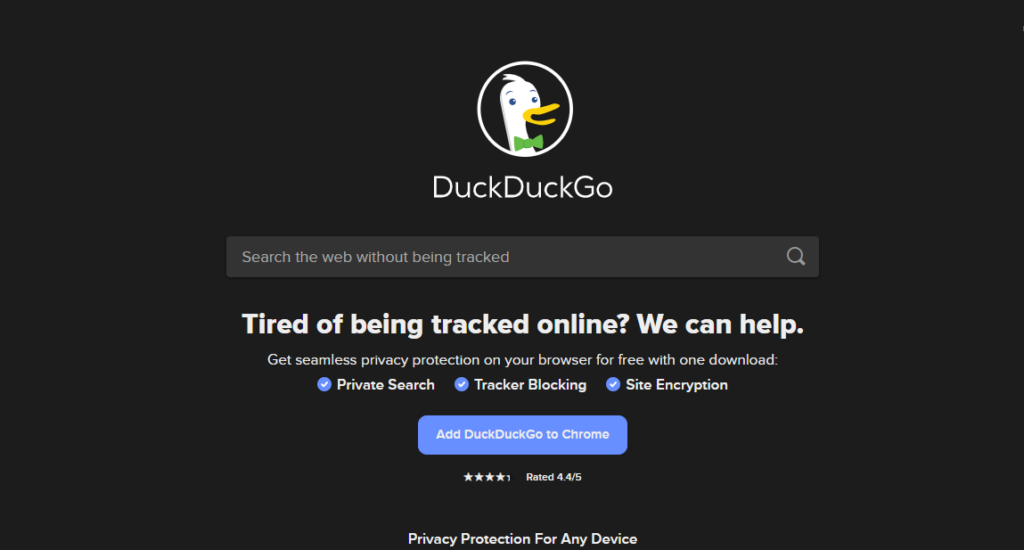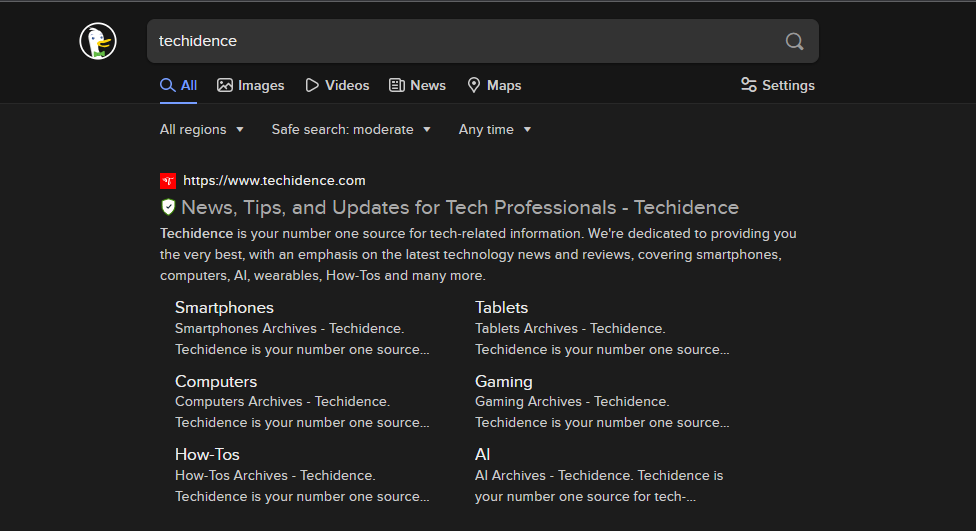DuckDuckGo is a rival search engine to Google that offers users more privacy. Created in 2008, the search engine does not store search history and has features such as displaying encrypted versions of sites. With this, DuckDuckGo seeks to keep users’ personal information more secure by avoiding tracking and data collection during queries. The search engine is available in browsers such as Chrome, Firefox, and Edge, and also in the form of apps for Android phones and iPhones (iOS). In the following lines, get a better understanding of how DuckDuckGo works and see six reasons that might convince you to switch from Google to the rival search engine.
1. You don’t need to activate the anonymous mode to browse with privacy

Unlike Google, where you need to navigate in an anonymous tab to have more privacy, DuckDuckGo automatically protects the user from search leakage. The term, “search leakage”, refers to the sharing of search terms with the websites that are clicked on the results page. In addition to the search terms used, the sites also collect other data such as IP addresses, connecting the keywords to the user’s personal information.
In protecting users from search leakage, DuckDuckGo covers the tracks and redirects the internet user’s clicks so that the sites do not know which terms were searched for. It also displays encrypted versions of the pages in the results. The sites will still know that you visited them, but they will not know which terms you searched for to get to them.
2. It does not store your search history
DuckDuckGo does not store search history, i.e. it does not save searches. Thus, the user does not receive query suggestions, nor is he or she able to review something he or she searched for previously. Thanks to this search engine policy, it is impossible to retrieve a search you have done, and you do not have to worry about having a specific query tied to your IP address.
Google, on the other hand, saves all search history unless the auto-delete function is enabled or the user logs into his or her account and deletes the search. In Incognito mode, the search history is deleted when the window is closed. Although more private, this mode also collects information such as location and search activity. In addition, Google may disclose users’ search history for legal purposes, such as in cases of a subpoena, court order, or search warrant.
3. Shows Fewer Ads

Compared to Google, which usually displays prominent ads already in the first search results, DuckDuckGo shows far fewer ads to the user. In addition, it blocks online trackers, so that ads do not re-appear while the user is browsing. In practice, if the user searches for a certain product on DuckDuckGo, he will not see ads for this item on other sites. Google, on the other hand, does not block crawlers but displays ads related to the search while browsing.
4. Sites load faster on DuckDuckGo
DuckDuckGo users may also notice differences in the speed at which pages load. This is because online trackers from other search engines not only collect personal information to serve ads but also add extra data to the sites you visit, which increases their loading time. DuckDuckGo, on the other hand, blocks these crawlers, freeing up bandwidth and allowing sites to load faster.
5. Search results are not influenced by search history

Google customizes the results shown to users based on previous search behaviors and clicks. With DuckDuckGo, since there is no storage of search history, the results are not filtered. Since the results are not personalized to the user’s interests, they can be more inaccurate when compared to those displayed by Google. Some of the results that appear on the first page of a DuckDuckGo search may appear on the second or third page of Google, for example, because they are less relevant.
6. Information DuckDuckGo collects
Even though DuckDuckGo does not store any personal information from internet users, it uses cookies to save any changes made to the settings and to track your recent searches in the menu that appears below the search bar. Also, it is worth noting that DuckDuckGo only collects anonymous product information and works with affiliate sites that do not require personal data from Internet users. The search engine does not store users’ data on its servers.
This post may contain affiliate links, which means that I may receive a commission if you make a purchase using these links. As an Amazon Associate, I earn from qualifying purchases.

